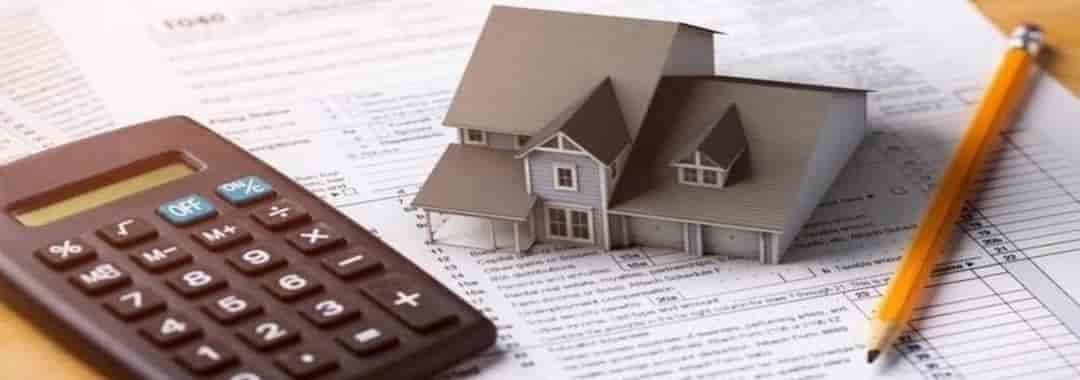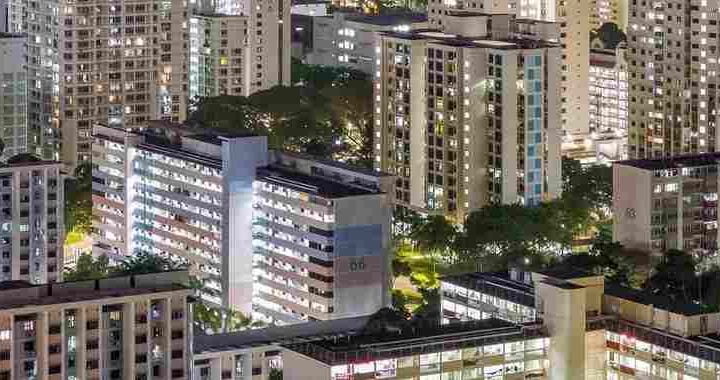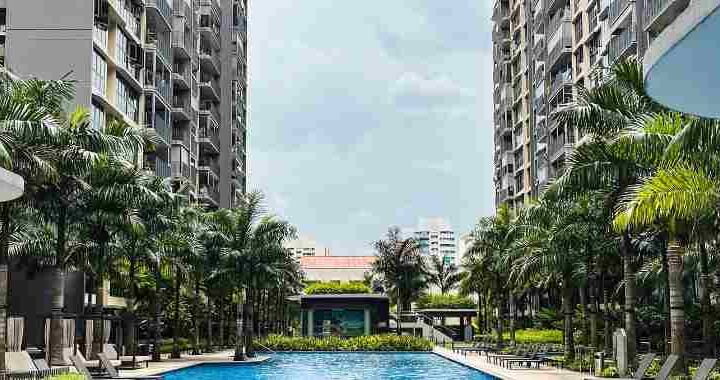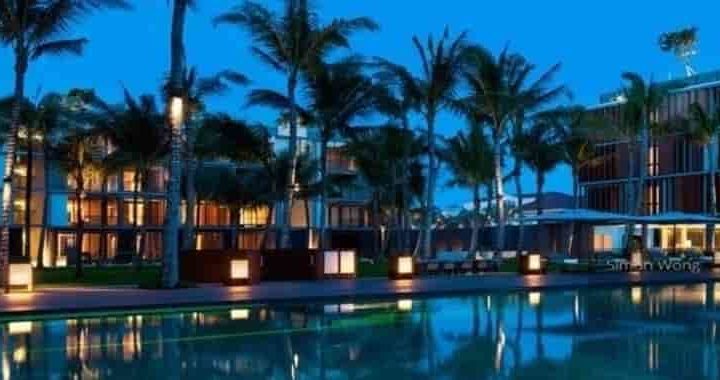It is important to know what are the Singapore property stamp duties - BSD, ABSD and SSD - as they will have an impact on your property investment. But first of all, what are they?
Basically, they are acronyms for Buyer's Stamp Duty, Additional Buyer's Stamp Duty and Seller's Stamp Duty respectively. This article will explain in detail how they are calculated, what their purposes are and how they will affect the cost of your property investment.
- Buyer’s Stamp Duty (BSD)
- Additional Buyer’s Stamp Duty (ABSD)
- Additional Buyer’s Stamp Duty (ABSD) For Married Couples With Foreign Spouses
- Can CPF Funds Be Used For Payment of Singapore Property Stamp Duties?
- Seller’s Stamp Duty (SSD)
- Timeline for Payment of Singapore Property Stamp Duties BSD, ABSD And SSD
- What Constitutes A Residential Property?
- Other Property Resources
- Reviews of New Property Launches
Firstly, Singapore property stamp duties are taxes on dutiable documents relating to any immovable properties. They are computed on the purchase price or market value of the property (whichever is the higher amount) stated in the document to be stamped. They are payable to the Inland Revenue Authority (IRAS), constituting one of the major sources of revenue for the Singapore government.
Secondly, the combination of BSD, ABSD and SSD is implemented to curb excessive speculation in the property market while keeping it in line with economic fundamentals. It is also to prevent a property bubble from forming which could have an adverse impact on the whole economy.
And because these stamp duties can add substantially to the cost of property investment in Singapore, they have the effect of dampening activity and keeping property prices in check. The imposition of these punitive property stamp duties is commonly referred to as “property cooling measures”.
The following will explain how the property stamp duties - BSD, ABSD and SSD - are calculated, and how they affect the property market in Singapore. These stamp duties apply to the investment in both private residential properties and HDB flats.
Buyer’s Stamp Duty (BSD)
Buyer’s Stamp Duty (BSD) is imposed on anyone buying a property in Singapore regardless of whether you are a Singapore Citizen (SC), Singapore Permanent Resident (SPR) or Foreigner (FR). It is based on the purchase price or market value of the property, whichever is higher, as indicated in the sale and purchase agreement. It is calculated in a graduated scale as follows:
| Higher of Purchase Price or Market Value of the Property | Residential Property | |
| Rates on or before 14 February 2023 | Rates on or after 15 February 2023 | |
| First $180,000 | 1% | 1% |
| Next $180,000 | 2% | 2% |
| Next $640,000 | 3% | 3% |
| Next $500,000 | 4% | 4% |
| Next $1,500,000 | 5% | |
| Amount exceeding $3,000,000 | 6% | |
For example, if you are buying a residential property costing 1 million dollars, the calculation for BSD is as follows, based on the above rates:
1% x $180,000 = $1,800
2% x $180,000 = $3,600
3% x $640,000 = $19,200
Hence, the total BSD payable for the residential property will be $24,600
Alternative formula (short-cut):
- 3% of Purchase Price minus $5,400 (for properties costing up to 1.0 million dollars)
- 4% of Purchase Price minus $15,400 (for properties costing above 1.0 million to 1.5 million dollars)
- 5% of Purchase Price minus $30,400 (for properties costing above 1.5 million to 3.0 million dollars)
- 6% of Purchase Price minus $60,400 (for properties costing above 3.0 million dollars)
Additional Buyer’s Stamp Duty (ABSD)
Additional Buyer’s Stamp Duty (ABSD) is levied based on the following:
- Singapore Citizens (SC) buying their second and subsequent residential properties.
- Singapore Permanent Residents (SPR) buying their first and subsequent residential properties.
- Foreigners (FR) and Entities buying any residential properties (Note: Nationals or Permanent Residents from Switzerland, Norway, United States, Iceland and Liechtenstein are eligible for ABSD remission under Free Trade Agreements (FTAs) and are accorded the same Stamp Duty treatment as Singapore Citizens).
How much ABSD a property buyer will incur will depend on his/her status as indicated below:
| Additional Buyer's Stamp Duty (ABSD) | Rates before 27 April 2023 | Rates from 27 April 2023 |
| SCs buying first residential property | 0% | 0% |
| SCs buying second residential property | 17% | 20% |
| SCs buying third and subsequent residential property | 25% | 30% |
| SPRs buying first residential property | 5% | 5% |
| SPRs buying second residential property | 25% | 30% |
| SPRs buying third and subsequent residential property | 30% | 35% |
| Foreigners buying any residential property | 30% | 60% |
| Entities buying any residential property | 35% | 65% |
| Housing Developers | 35% (remittable, subject to conditions) + 5% (non-remittable) | 35% (remittable, subject to conditions) + 5% (non-remittable) |
From the above table, ABSD for a $1 million dollars residential property is calculated as follows.
- For Singapore Citizens (SC) buying their SECOND property, the ABSD payable is: 20% x 1 million dollars = $200,000 (No ABSD is payable if it is their FIRST property).
- For Singapore Permanent Residents (SPR) buying their FIRST property, the ABSD payable is: 5% x 1 million dollars = $50,000
- For Foreigners (FR) buying their FIRST property, the ABSD payable is: 60% x 1 million dollars = $600,000
Additional Buyer’s Stamp Duty (ABSD) For Married Couples With Foreign Spouses
How does Additional Buyer’s Stamp Duty (ABSD) apply if a Singapore Citizen (SC) is married to a Singapore Permanent Resident (SPR) or Foreigner (FR)? If one of the spouses is a Singapore Citizen (SC) and both jointly purchased their FIRST property, ABSD will not apply.
However, if the married couple consists of one Singapore Citizen (SC) and a Singapore Permanent Resident (SPR) or Foreigner (FR), and if they jointly buy a SECOND property, the higher ABSD rate will apply. The following tables will illustrate how the ABSD rate is applied to couples holding different citizenship status:
Table 1: Married Couple who are both SC
| No. of properties currently owned* by each spouse | Joint purchase of next residential property | No. of properties owned* by SC1 after co-purchase | No. of properties owned* by SC2 after co-purchase | ABSD rates | Refund of ABSD paid on purchase of second residential property | ||
| Rates before 27 April 2023 | Rates from 27 April 2023 | ||||||
| SC1 | SC2 | ||||||
| 0 | 0 | 1 | 1 | 1 | 0% | 0% | Not Applicable |
| 1 | 0 | 2 | 1 | 17% | 20% | Only if the married couple disposes of the first property which they owned individually or co-owned. | |
| 1 | 1 | 2 | 2 | 17% | 20% | ||
| Co-owned 1 | 2 | 2 | 17% | 20% | |||
| 2 | 0 | 3 | 1 | 25% | 30% | Not available | |
| Co-owned 2 | 3 | 3 | 25% | 30% | |||
Table 2: Married Couple who are SC-SPR
| No. of properties currently owned* by each spouse | Joint purchase of next residential property | No. of properties owned* by SC1 after co-purchase | No. of properties owned* by SPR2 after co-purchase | ABSD rates | Refund of ABSD paid on purchase of second residential property | ||
| Rates before 27 April 2023 | Rates from 27 April 2023 | ||||||
| SC1 | SPR2 | ||||||
| 0 | 0 | 1 | 1 | 1 | 0% | 0% | Not Applicable |
| 1 | 0 | 2 | 1 | 17% | 20% | Only if the married couple disposes of the first property which they owned individually or co-owned. | |
| 0 | 1 | 1 | 2 | 25% | 30% | ||
| 1 | 1 | 2 | 2 | 25% | 30% | ||
| Co-owned 1 | 2 | 2 | 25% | 30% | |||
| 2 | 0 | 3 | 1 | 25% | 30% | Not available | |
| Co-owned 2 | 3 | 3 | 30% | 35% | |||
Table 3: Married Couple who are SC-FR
| No. of properties currently owned* by each spouse | Joint purchase of next residential property | No. of properties owned* by SC1 after co-purchase | No. of properties owned* by FR2 after co-purchase | ABSD rates | Refund of ABSD paid on purchase of second residential property | ||
| Rates before 27 April 2023 | Rates from 27 April 2023 | ||||||
| SC1 | FR2 | ||||||
| 0 | 0 | 1 | 1 | 1 | 0% | 0% | Not Applicable |
| 1 | 0 | 2 | 1 | 30% | 60% | Only if the married couple disposes of the first property which they owned individually or co-owned. | |
| 0 | 1 | 1 | 2 | 30% | 60% | ||
| 1 | 1 | 2 | 2 | 30% | 60% | ||
| Co-owned 1 | 2 | 2 | 30% | 60% | |||
| 2 | 0 | 3 | 1 | 30% | 60% | Not available | |
| Co-owned 2 | 3 | 3 | 30% | 60% | |||
Table 4: Married Couple who SPR-FR
| No. of properties currently owned* by each spouse | Joint purchase of next residential property | No. of properties owned* by SPR1 after co-purchase | No. of properties owned* by FR2 after co-purchase | ABSD rates | Refund of ABSD paid on purchase of second residential property | ||
| Rates before 27 April 2023 | Rates from 27 April 2023 | ||||||
| SPR1 | FR2 | ||||||
| 0 | 0 | 1 | 1 | 1 | 30% | 60% | On or after 12 Jan 2013, there is no remission of ABSD for married couples who are SPR-FR. |
| 1 | 0 | 2 | 1 | 30% | 60% | ||
| 0 | 1 | 1 | 2 | 30% | 60% | ||
| 1 | 1 | 2 | 2 | 30% | 60% | ||
| Co-owned 1 | 2 | 2 | 30% | 60% | |||
| 2 | 0 | 3 | 1 | 30% | 60% | ||
| Co-owned 2 | 3 | 3 | 30% | 60% | |||
Additional Buyer’s Stamp Duty (ABSD) Remission
Full Additional Buyer’s Stamp Duty (ABSD) remission may be applicable to a married couple who jointly purchases a second residential property if they meet certain conditions. These are:
- The married couple must include a Singapore Citizen and the property is purchased under the name of the couple only.
- They must not have interest in more than one residential property at the date of purchase of the second residential property.
- ABSD has been paid on the second residential property.
- The first residential property (co-owned or separately owned) is sold within 6 months after (i) the date of purchase of the second property for completed property or; (ii) the issue date of the Temporary Occupation Permit (TOP) / Certificate of Statutory Completion (CSC), whichever is earlier if the property was uncompleted at the time of purchase
- The married couple remains married and there is no change of ownership in the second residential property at the time of the sale of the first residential property.
- The married couple has not acquired additional residential property since the purchase of the second residential property.
- The application for a refund of ABSD must be made within 6 months after the date of sale of the first residential property.
Can CPF Funds Be Used For Payment of Singapore Property Stamp Duties?
Buyers cannot use their CPF funds to pay for SSD. It must be paid in cash. However, they can apply for reimbursement for BSD and ABSD from their CPF accounts if they wish to, but with the following conditions:
- Only funds from the CPF Ordinary Account (OA) can be used
- For the purchase of a second property using CPF, the prevailing Basic Retirement Sum (BRS) must be set aside before any excess monies can be used
- For the purchase of completed projects, BSD and ABSD must be paid in cash first and then get reimbursement from CPF at a later date
- For the purchase of uncompleted properties, BSD and ABSD can be paid directly from CPF
Besides stamp duties, CPF funds in the Ordinary Account can also be used to pay:
- Legal fees
- Purchase price
- Monthly repayments of housing loan
Seller’s Stamp Duty (SSD)
For those thinking of speculating in properties by flipping them for quick profits, they have to take into consideration the Seller’s Stamp Duty (SSD) which will take a chunk out of their sales proceed. This has the effect of curbing rampant property speculation to ensure property prices move in line with economic fundamentals.
Sellers who wish to dispose of their properties within three years will have to pay SSD based on the rates below. As can be seen, those who sell their properties within one year of their purchase will face a punitive charge of 12%.
| SSD Holding Period | SSD Rate on/or after 11 March 2017 |
| Up to 1 year | 12% |
| > than 1 year and up to 2 years | 8% |
| > than 2 years and up to 3 years | 4% |
| > than 3 years | No SSD payable |
SSD is calculated from the date when the buyer exercised the Option to Purchase or Sales and Purchase Agreement. It is based on the selling price or market value, whichever is higher.
For example, if you sold your property at 2 million dollars within 1 year of its purchase, the SSD payable will be:
12% x $2,000,000 = $240,000
Seller's Stamp Duty (SSD) Exemption
If you fall under one of the following cases, you are eligible for seller's stamp duty (SSD) exemption:
- Licensed housing developers who are governed under the Housing Developers (Control and Licensing) Act need not pay SSD when selling residential properties developed by them.
- Public authorities (e.g. HDB and JTC) in exercising their functions and duties need not pay SSD when selling residential properties.
- Residential property owners need not pay SSD when their properties are acquired by the Government under the Land Acquisitions Act.
- Individuals who own residential properties need not pay SSD if they have been adjudged bankrupt and are required to dispose of their residential properties as a result of bankruptcy.
- Companies that own residential properties need not pay SSD when disposing of their residential properties upon involuntary winding up.
- Foreigners need not pay SSD when they have to sell their residential properties as required under the Residential Properties Act.
- For HDB flat sellers or transferors who bought or acquired their flats on or after 30 Aug 2010 and their flats have been identified for Selective Enbloc Redevelopment Scheme (SERS) but sell their flats in the open market before HDB claims them.
- HDB flat sellers or transferors who return their flats to HDB as a result of re-possession by HDB or under the SERS.
- A person who owns an HDB flat and inherits another HDB flat is required under the HDB’s regulations to dispose of either the inherited HDB flat or the existing HDB flat. This exemption applies to the disposal of flats on or after 18 Dec 2015.
- A person who owns a non-HDB flat and inherits an HDB flat is required under the HDB’s regulations to dispose of the inherited HDB flat. This exemption applies to the disposal of flats on or after 18 Dec 2015.
- A person who owns an HDB flat marries a person who owns another HDB flat and the couple is required under the HDB regulations to dispose of either one of the HDB flats. This exemption applies to the disposal of flats on or after 18 Dec 2015.
Timeline for Payment of Singapore Property Stamp Duties BSD, ABSD And SSD
Purchasers of properties in Singapore who incurred BSD, ABSD or both, they must pay:
- within 14 days from the date of execution of the Sales & Purchase Agreement or Option to Purchase if it is signed in Singapore or;
- within 30 days of its receipt in Singapore if it is signed overseas
For SSD, it must be paid within 14 days of the date of the Contract/Agreement to sell your property.
What Constitutes A Residential Property?
According to the Residential Property Act, residential properties include the following:
- Condominiums and apartments
- Bungalows
- Terrace Houses
- Cluster Houses
- Executive Condominiums
- HDB Flats
- HUDC Flats
- HDB Shops with Living Quarters
- Shophouses with Mixed Commercial & Residential Use
However, there are restrictions on property ownership for Singapore Permanent Residents (SPR) and Foreigners (FR). More information on this can be found in "Singapore Property Rules for Foreigners".
As can be seen, investing in a property is a huge financial commitment, and probably one of the most important decisions you will make in your life. Whether you are buying for investment or your own stay, there are critical cost elements such as Singapore property stamp duties to account for.
In addition, those who are using their CPF monies to finance their property purchase, please take note of the rules concerning CPF usage.
We hope this guide has been useful to you. However, should you require more information about the Singapore property market or property financing, please do not hesitate to WhatsApp or Email us for an obligation-free consultation.
Other Property Resources
Reviews of New Property Launches
For reviews of new property launches, please click on the links below. More project information can also be found here.




